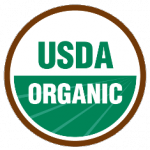How do you become (and stay) certified?

The USDA organic seal verifies that approved methods were
used in the production and handling of the item.
Organic producers and processors must be certified by an accredited agent of the USDA National Organic Program (in California, organic operations must also register with the California Organic Program). State Departments of Agriculture are often the certifying agent for their state, but there are also accredited private companies that provide this service. Find a certifying agent for your area here.
In order to receive organic certification, growers must meet all applicable rules set forth by the National Organic Program (NOP), including using only approved materials throughout the entire production and handling process. Synthetic fertilizers, prohibited pesticides, sewage sludge, irradiation, and genetically modified organisms (GMOs) cannot be used in the fields, on the plants, or anywhere they may contact the finished products. Prohibited substances cannot be used within three years of seeking the original organic certification or at any time after certification. Once the operation is certified, growers and processors must keep records of all materials used in the production process, including fertilizers, soil amendments, approved pest management products, and any materials which may contact the end product. (See an overview of the National Organic Program Standards and learn more here: NOP Organic Standards.)
Organic certification rules apply only to production and processing of commodities offered for sale, including crops, fiber, livestock, livestock products, or other agricultural products. There are no federal regulations of the use of the term “organic” for management of lawns, landscapes, buildings, or other sites. Use of the term “organic” has no legal specified meaning other than for commodities offered for sale.

Initial compilation courtesy of Lenora Jones
